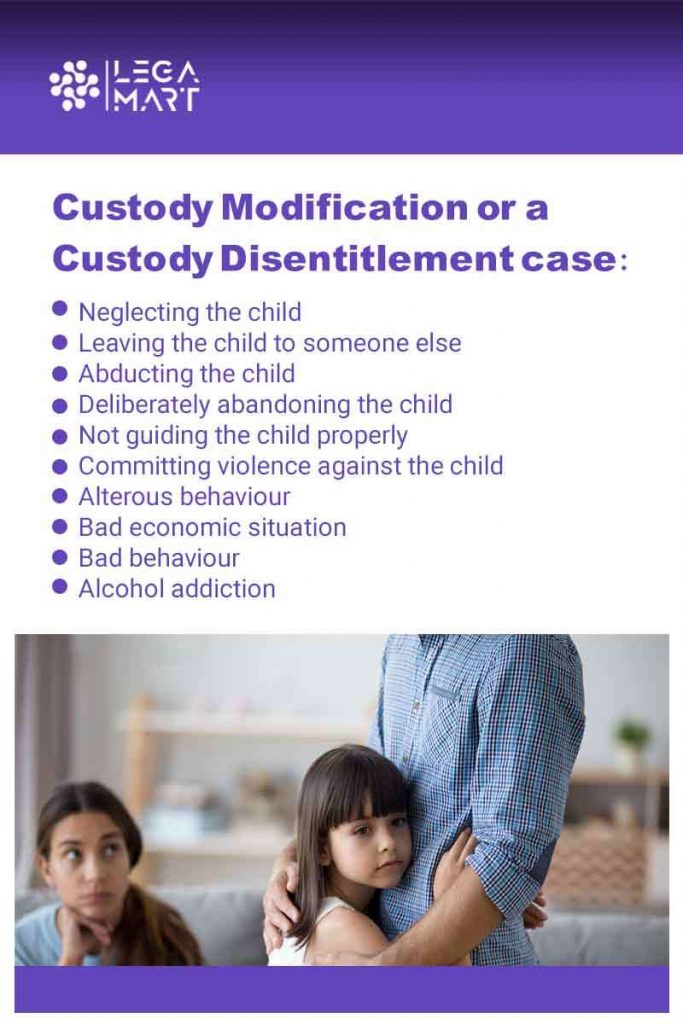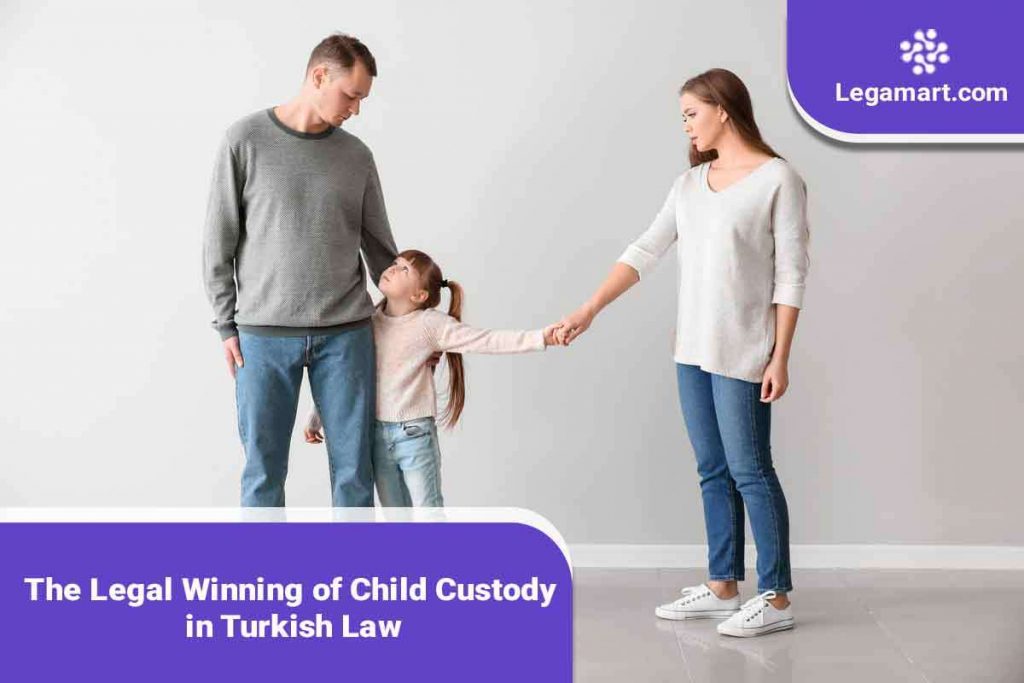- Introduction
- Child Custody in Turkish Law
- Should children be listened to and their opinions evaluated in a divorce case?
- What are the reasons for deciding on child custody in Turkish law?
- How is custody given to a spouse?
- Foreign National Parents rules
- Financial claims available to parents on behalf of children within or outside of the marriage
- Child custody attorneys in Turkey
- Conclusion
- Frequently Asked Questions (FAQs)
Introduction
International marriages have grown dramatically due to globalization and the rising migration of people and families across national borders. Many married ex-pats find their marriage expanding beyond their native country’s borders.
However, things can change for various reasons, even if it appears to be a storybook romance at first. The issue then becomes, what happens if the great distance takes its toll and the marriage begins to crumble?
Many couples initially misunderstand the international implications of divorce. Aside from divorce and asset division, child custody is one of the most important topics. As a result, a legal agreement between parents on their children’s maintenance, well-being, and parenting duties is essential.
This article aims to reveal all the issues that child custody in Turkey has to deal with, or, to put it another way, all the regulations regarding Child Custody in Turkish Law.
Child Custody in Turkish Law
In Turkey, family regulations include provisions for children, particularly when their parents’ divorce. The rules of Child Custody in Turkish law may be found in Civil Code Law No. 4721, which states that the mother and father have custody rights until the child reaches the age of 18.
Regarding the regulation of Child Custody in Turkish law, if parents divorce, custody is divided between them. A child’s legal representatives are their parents until they reach the age of 18; after that, they will represent themselves, and their parents will no longer be able to act on their behalf.
The Turkish Civil Code (Article 336) states that when parents divorce, only one parent may be granted custody of their child to the exclusion of the other parent, either by consent or by judicial judgment (Article 819, Turkey Civil Code). Legal and physical custody are both aspects of parental power.
Here are some more essential details to consider about Child Custody in Turkish Law:
1. When kids are minors, their parents are obligated to care for them, educate them, and provide support. Children must respect their parents and their wishes and are not permitted to leave the house without their parent’s permission.
2. When it comes to a divorce, the judge has to decide which parent gets custody of the child based on Child Custody in Turkish Law; there are a few variables to consider. The ability of a parent to provide a better life, education, and standard of living for their child is the most critical aspect. The decision on which parent will have custody is made in the child’s best interests, which may entail taking into account the respective parents’ work, income, and lifestyle situations. Visitation is usually granted to the non-custodial parent.
If the custodial parent denies the other parent visitation, the other parent might obtain it through an enforcement procedure. In this scenario, according to the regulation of child custody in Turkish law, the custodial parent must allow the child visitation within seven days of receiving the enforcement order. Otherwise, the custodial parent is forced to do so through an enforcement procedure.
3. Mothers are frequently given custody since they are thought to be more suited to care for small children. If the mother cannot provide a good education and living environment for the child, the father may be granted possession.
Regarding Child Custody in Turkish Law, joint custody is permitted throughout the marriage and sole custody after the divorce. However, in particular Court of Cassation rulings, the question of whether joint custody conforms with public order is reviewed, and it is concluded that joint custody is impossible. Later judgments of the Supreme Court go in the other direction.
The best interests of the kid should be examined again for shared custody, and parents should agree on this.
Should children be listened to and their opinions evaluated in a divorce case?
Parents going through a divorce or separation have a dilemma: do they want to involve their children in parenting plan decisions? And, if so, how should their perspectives be heard?
Some individuals feel that children should have a complete say about who they live with, when they live with them, and how they spend their time. Others argue that youngsters should have no say at all. There is also a broad spectrum of viewpoints between these two extremes.
The Turkish Court of Cassation ruled in an important ruling in 2018 that the views of a child of adequate maturity must be considered in an application to modify custody, following the terms of the United Nations Convention on the Rights of the Child and the European Convention on the Exercise of Children’s Rights.
What are the reasons for deciding on child custody in Turkish law?
There are several cases where parents:
- Kidnap the child.
- Take the kid away without due process or the approval of another partner.
- Move the kid to a new country or jurisdiction.
Let’s discuss the legal choices accessible to the other parent if the kid is taken from one parent’s care and transported to another country without his agreement. What jurisdiction might he appeal to, and what other legitimate concerns could arise?
A parent may file an appeal with the court that issued the divorce and set the parents’ duties.
In the international scenario, the treaty convention against child abduction is a recurring problem addressed by the Hague Conference on private international law. It has taken steps to prevent such activities and provide access to the unlawfully abducted individual.
How is custody given to a spouse?

Usually, custody is given to a spouse in accordance with the uncontested divorce agreement in case of uncontested divorce. However, if it is a contested divorce, custody is provided following the decision of the judge, regardless of whether the spouse claims it or not.
The priority remains the benefit of the child in custody matters. Therefore, the judge uses their best efforts so that the child stays with the right parent.
Joint Custody
In Turkish Law, the idea is that there should be joint custody during the marriage and sole custody after the marriage. However, in some rare Court of Cassation decisions, if the joint custody is by the public order, it is considered and decided, and in some cases, it is allowed. Nevertheless, the best interests of the child remain paramount, and in case of joint custody, the parents must duly agree to it.
Custody Modification or a Custody Disentitlement case

The non-performance or abuse of custody obligations is evaluated on the following issues:
- Neglecting the child
- Leaving the child to someone else
- Abducting the child
- Deliberately abandoning the child
- Not guiding the child properly
- Committing violence against the child
- Alterous behaviour
- Bad economic situation
- Bad behaviour
- Alcohol addiction
If any of these situations are prevalent, it is possible to file for custody modification or a custody disentitlement case.
Situations when custody is not given to the mother
The custody of children of young age is usually given to the mother. However, there may be situations when this is not the case; instead, custody is given to the father. One of these situations is when the mother does not claim custody of the child. Other situations can be the mother being mentally ill, the mother committing violence against the child, or the mother having bad habits – all of which depend on the discretion of the judge.
Foreign National Parents rules
Every family in Turkey is included in the population registry. Each change in the family structure must be reported to the Turkish authorities. You will require a Turkish court ruling to inform the population registry of a divorce.
A divorce judgment issued by a non-Turkish court does not automatically invalidate a marriage registered or performed in Turkey. Any Turkish person involved in such a lawful separation should sue in Turkey to have the foreign divorce order acknowledged by a Turkish family court. Divorce decisions made in jurisdictions other than Turkey are not considered legitimate for divorce purposes in Turkey. And that can be applied to the regulation regarding Child Custody in Turkish law.
The Uniform Child Custody Jurisdiction and Enforcement Act (UCCJEA) requires governments to recognize other countries’ jurisdiction and custody judgments as long as the parents are given notice and a chance to be heard. Member states must comply with the Hague Convention on the Civil Aspects of International Child Abduction under an existing custody agreement to return children whose parents have been kidnapped to a foreign country. The Convention also states that children gain the most in custody disputes when the laws of the country where they generally reside are used.
In fact, a foreign parent has fewer chances of obtaining custody of a Turkish child, especially if the child is to be taken out of Turkey. Although there is no applicable statute, most judges would deem this activity detrimental to the child. They would order custody to be granted to the counterpart if he or she is Turkish.
Financial claims available to parents on behalf of children within or outside of the marriage
In Turkey, both parents have mutual rights and responsibilities for managing children’s assets under Article 352 of the Civil Code. During divorce, the parent with custody of the child is expected to provide information that shows the assets of the child in court. Further, the parent is expected to notify the court about all the important changes to the assets of the child, along with any investments. The parents can use the income received from children’s assets to care for, raise, and for the education of the child, along with covering any family expenses, in accordance with the equity.
The expenses of care, education and protection of the child are covered by both parents under Article 327 of the Civil Code. In case the child is born outside of marriage, the paternity of the father must be legally established to request the child maintenance from the father. This can be done through recognition before the authority or with the judgment of the court. The decision of the court in the Civil Chamber of Supreme Court dated 4 November 2019, and No 2019/3941 E. 2019/8662 had said, “As a result of the establishment of the paternity, the defendant’s (father) obligation of maintenance is occurred”.
On what basis is the child maintenance calculated?
Under Turkish Law, there is no fixed standard template for calculating child maintenance. In such cases, the court usually considers the financial situation of both the parents, along with the needs and age of the child. Further, the income of the child shall also be considered during the evaluation of child maintenance under Article 330(1) of the Civil Code. The judge shall make the final calculation based on such factors, inclusive of both spouses. Child maintenance is usually paid monthly and not as a lump sum.
Child custody attorneys in Turkey

Child custody may be the most challenging subject to resolving during the divorce. The petition splits assets as a one-time agreement, but the impact of custody arrangements remains after the divorce is completed in line with the petition’s terms. In divorce proceedings, it is customary to accuse the other side of being an inadequate parent. This technique aims to get custody of the children, limit the other party’s visiting rights, shield the kid from harm, or make the case that they are the better person to whom the court should allocate custody.
It would be best if you prepared yourself for the possibility that you may be depicted in this manner during the divorce process. Recognize that this is a battle in which you must represent your and your children’s best interests. Alternatively, you can use your smartphone to access the LegaMart directory and hire a lawyer to learn everything you need to know about child custody in Turkish law. Our attorneys understand the stress that a long-distance legal fight may create and will do all they can to keep your costs low while winning your case.
With our vast experience advising on divorce in general and child custody in particular, our lawyers at LegaMart will please you with the finest legal services, guiding you through all the complex regulations about child custody in Turkish law. Our priority is always to guarantee high client satisfaction, which we achieve by understanding your circumstance, offering appropriate solutions, and keeping you up to date on progress. Don’t hesitate to contact us to understand your circumstances better and see how we can assist you through the tough time straightforwardly and practically.
If you as a Turkish citizen want to immigrate to Norway, then we have an interesting article on ways to Immigrate to Norway from Turkey.
Ways to Immigrate to Norway from Turkey
Conclusion
Legal formalities do not govern divorce. It requires judges to use logic, social order comprehension, and reasoning. When several countries and legal systems are involved, the process of granting separation becomes more interwoven. The same is true when it comes to child custody. We need to be more humanitarian when dealing with child custody issues because it is a question of life and identity for the child.
Frequently Asked Questions (FAQs)
Is custody of minor children always given to the mother in case of divorce?
Here, the discretion rests with the judge. Based on the fact that young children are especially in need of the mother’s care and affection, their custody is given to the mother in case of divorce. However, this is not an absolute rule and depends on a case-by-case basis.
As a matter of fact, the Court of Cassation rendered a decision in a case where the moral condition of the mother was the reason for the divorce case and granted custody to the father: “…since there is serious and convincing evidence that keeping the joint children with the plaintiff mother would hinder the physical, intellectual and moral development of the children, it is not possible to assign the right of custody to the plaintiff mother.”
Does the fact that the mother is a foreign national and not a Muslim constitute a reason why custody should not be granted to her?
In a recent case, when there was a custody battle between a Turkish father and Swiss mother, it had been held the Civil Chamber of the Court of Cassation that “It is concluded that if the custody is left to the Swiss mother, the child will be subjected to education in accordance with Swiss laws, customs, traditions and religion, and as a result, the child will be deprived of Turkish history and Turkish customs, national feelings and thoughts.
The opinion that custody of a minor daughter should be given to the mother because she needs her mother’s care and affection cannot be strictly applied when the parents are of different nationalities. In addition to the future benefit of the child, the benefits of the society on which it depends are important factors in the arrangement of custody. People are mortal, the nation is permanent, and the survival of the nation depends on the perseverance and will of its individuals to keep it alive and glorify it. They emphasized that it is not always and generally possible to realize positive steps towards Turkish society and the integrity of the homeland only by acquiring material knowledge and that these must be shaped and developed within historical, national, moral, material and spiritual values.”
Therefore, a foreign parent has fewer chances of obtaining custody of a Turkish child, especially if the child is taken out of Turkey. Although there is no applicable statute, most judges would deem this activity detrimental to the child.




